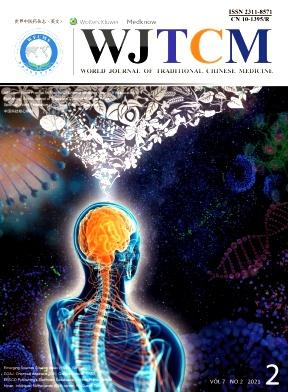Symptom assessment and management in patients with lung cancer undergoing conventional or traditional chinese medicine care
IF 3.2
3区 医学
Q1 INTEGRATIVE & COMPLEMENTARY MEDICINE
引用次数: 0
Abstract
Patients with lung cancer may experience various symptoms as the disease progresses, which may reduce the benefits of cancer treatment, reduce treatment compliance, delay cancer treatment, reduce the quality of life (QoL), and impact survival. This review discusses comprehensive symptom assessment and management, which are crucial for high-quality lung cancer treatment. Traditional Chinese medicine (TCM) is important in relieving cancer-related symptoms in patients with lung cancer. Including patient-reported outcomes (PROs) in clinical trials and practice can provide a better assessment of symptom burden and the effectiveness of symptom management. Patient-centered care with TCM in lung cancer patients may include six steps: Symptom screening, etiology investigation, comprehensive assessment, integrative management, reassessment, and regular symptom follow-up monitoring. PRO measures can be used to evaluate symptom intensity, the degree to which symptoms interfere with activities of daily living, and the QoL. Clearly defined and reliable PRO measures can enhance patient satisfaction and improve symptom control. Quantitative PRO measures developed from the TCM perspective should be considered one of the important outcome measurements in TCM care. A multidisciplinary collaborative symptom management model, including TCM and conventional therapy, will be the future goal for treating patients with lung cancer.癌症患者接受常规或中医治疗的症状评估与管理
随着疾病的发展,癌症患者可能会出现各种症状,这可能会降低癌症治疗的益处,降低治疗依从性,延迟癌症治疗,降低生活质量(QoL),并影响生存。这篇综述讨论了全面的症状评估和管理,这对高质量的癌症治疗至关重要。中医在缓解癌症患者癌症相关症状方面具有重要意义。将患者报告的结果(PROs)纳入临床试验和实践可以更好地评估症状负担和症状管理的有效性。以患者为中心的癌症患者中医护理可能包括六个步骤:症状筛查、病因调查、综合评估、综合管理、再评估和定期症状随访监测。PRO测量可用于评估症状强度、症状对日常生活活动的干扰程度以及生活质量。明确定义和可靠的PRO措施可以提高患者满意度并改善症状控制。从中医角度发展的定量PRO测量应被视为中医护理中的重要结果测量之一。多学科协作症状管理模式,包括中医和常规治疗,将是治疗癌症患者的未来目标。
本文章由计算机程序翻译,如有差异,请以英文原文为准。
求助全文
约1分钟内获得全文
求助全文
来源期刊

World Journal of Traditional Chinese Medicine
Medicine-Complementary and Alternative Medicine
CiteScore
5.40
自引率
2.30%
发文量
259
审稿时长
24 weeks
 求助内容:
求助内容: 应助结果提醒方式:
应助结果提醒方式:


